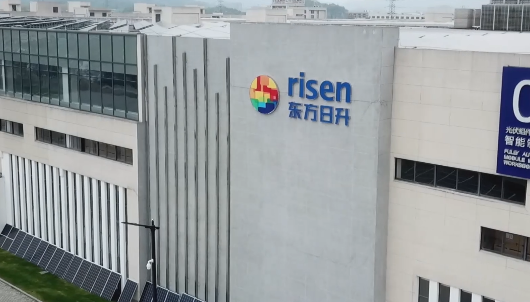PVTIME – Risen Energy, the leading solar module manufacturer in China announced that the company is beginning to mass-produce HJT Hyper-ion solar modules at a press conference held in Shanghai on December 24th. Song Yifeng, the Product Director of Risen Energy, gave a keynote speech on the challenges and progress of industrializing heterojunction (HJT) technology. He introduced the company’s plan to mass-produce HJT Hyper-ion solar modules and emphasized the focus on reshaping the n-type HJT product ecosystem while reducing costs and carbon footprint as the core of the development plan.

Risen Energy also revealed plans to increase the production capacity of the HJT Hyper-ion solar cell and module to 5GW by the first half of 2023, and then triple it to 15GW in the following six months.
Since 2019, Risen Energy has invested heavily in research and development for materials, equipment, technology, and processes related to HJT technology. This investment has allowed the company to take the lead in unlocking the benefits of n-type HJT technology and innovating on the path of seeking new possibilities that will help the solar sector achieve technological transformation.
Risen Energy has also launched targeted development projects for special packaging materials, special water-blocking process design, and anti-attenuation solutions, which have paved the way for mass production of the HJT Hyper-ion module. In addition, Risen Energy’s patented technology, Hyper-link, allows for the interconnection of ultra-thin cells with low silver consumption, reducing costs while ensuring power output and product reliability.
Thanks to these technological innovations, the power output of Risen Energy’s HJT Hyper-ion module reaches 710 Wp, with an efficiency exceeding 22.5%, which has been certified by TUV SÜD. It also features an extremely stable temperature coefficient and a high bifaciality of up to 85% ±5%, capable of maintaining its power output above 90% after 30 years of use. The module is backed by Risen Energy’s industry-leading 100μm ultra-thin cell technology and low-temperature process, resulting in a carbon footprint value (CFP) lower than 400kg eq CO2/kWc, far below the market average.
Compared with the conventional metal frame, the alloy frame of the HJT Hyper-ion module boasts exceptionally high strength with the tear-resistant capability of the steel material increased by 20%. With the environment in mind, Risen Energy has also reduced the carbon emissions involved in the manufacturing of the frame.










